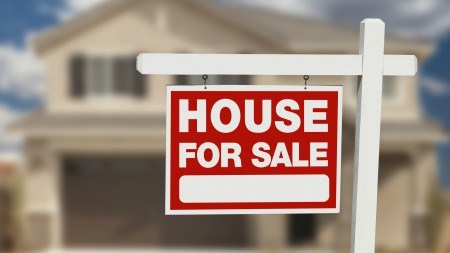Today’s buyers are well informed about property pricing and fair market value. As such, sellers need to price their property accordingly to ensure that they will attract the right buyers to the home.
It goes without saying that homeowners who place their property on the market are looking to get the best possible return on their investment, says Adrian Goslett, Regional Director and CEO of RE/MAX of Southern Africa. He notes that a vital aspect of selling a home is its listing price, so having a sound pricing strategy is essential for sellers in order to find the right buyer for their home. “Regardless of whether the market favours buyers or sellers, it is important that homeowners have a plan of action if they want to achieve the best possible selling price for their property. In today’s age of readily available data, buyers are savvy and educated with regard to the property pricing and fair market value. As such, sellers need to price their property accordingly to ensure that they will attract the right buyers to the home,” says Goslett.
Here are six common pricing mistakes that sellers should avoid:
Overpricing
The most common pricing mistake that homeowners make is inflating their listing price to counteract buyer negotiations. There is also the matter of emotional attachment to the home. Many homeowners perceive their home to be the best in the neighbourhood and set a price that is relative to the value they perceive. However, buyers may not perceive the home’s value in the same way. “An inflated price will leave out strong potential buyers, especially if statistics and recent sales figures of other properties in the area don’t support the asking price. The seller will run the risk of multiple price reductions, which could have the home sitting on the market for longer than necessary,” advises Goslett.
Disregarding recent home sale prices
Often the selling price varies from the initial asking price. To gauge fair market value and arrive at an asking price that will generate buyer interest, sellers cannot base their assessment on what other homes in the area were listed at, but rather the price they actually achieved. An experienced real estate professional will have access to this kind of information and will be able to provide valuable guidance to sellers when determining the right listing price.
Not considering online search parameters
Nine out of ten buyers start their home search online. As such, it is crucial to consider this when setting an asking price. “Property search portals require the user to enter a price range to narrow down their search options. If the asking price is R755 000 and the buyer’s price range is from R700 000 to R750 000, the home will be missed. By listing the property at R750 000, there will be a far greater chance of capturing potential buyers in the ranges above and below the asking price,” advises Goslett. “While the ultimate decision lies with the seller and their agent, it is worth considering the search portal price ranges when setting the price.”
Too creative with the price
Deciding on a round number is far easier for all the parties involved. While the home could have distinguishing features that could lead the seller to list their property at an unusual number, such as R715 544. It might divert the buyer’s attention from the property and onto to seller’s intentions. It is far better to stick to simple figures and leave the creativity to the home’s marketing.
Not open to negotiation
Deals die quickly if the parties are not open to negotiating. “Circumstances depending, a seller could be less or more inclined towards negotiation. This will largely be influenced by how quickly they would like to sell, as well as how much money they require to get out of the sale. Staying steadfast on the asking price or other conditions, could mean that the seller is in for a long and bumpy ride during the selling process,” says Goslett. “Sellers may need to decide whether it is more important to get the full asking price and have the home on the market for longer or make a few concessions and close the deal.”
Not taking the agent’s insights into consideration
Selecting a reputable agent with area experience will put the seller on the right path to setting the correct asking price. An agent will have access to resources and information that the homeowner will not. They will base their assessment on facts and figures, without bringing emotion into the equation. An agent will be able to provide an unbiased opinion, looking at the situation from all angles, such as the home’s features, the local market, recent sales and more.
Goslett concludes by saying that avoiding these common mistakes and setting the correct price from the start will ensure that it will attract the right potential buyers, which will result in the homeowner selling for the best possible price, within the best possible time frame.




